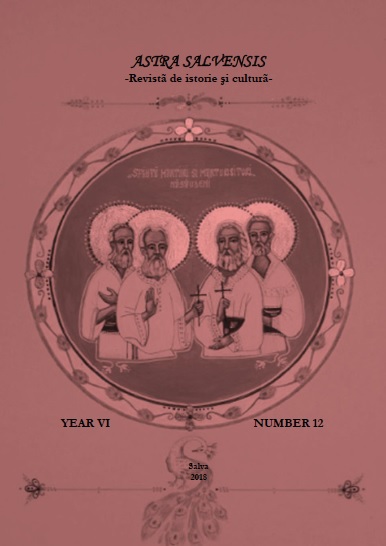Christlich Geprägte Menschliche Handlung als Basis für die Soziale Lehre der Kirche
Christian Embossed Human Action as a Basis for the Social Doctrine of the Church
Author(s): Inocent-Mária V. Szaniszló O.P.Subject(s): Christian Theology and Religion, Social Sciences, Theology and Religion, Religion and science , Sociology of Religion
Published by: Asociaţiunea Transilvană pentru Literatura Română şi Cultura Poporului Român - ASTRA
Keywords: Moral act; Freedom; Law of God; Natural Law; Human dignity;
Summary/Abstract: The question of the place of the social doctrine of the Church between the systematic theological sciences is very important for the precise definition of the sources and the scientific treatment of the subject. In the search for answers to this question we try to go out of the science of human deeds called Moral Theology and its practical application in society with the meaning "the leadership of the Christian attitude" (SRS, 41). In the matter of moral act, St. John Paul II reminds us that the relation of human freedom and the law of God (whose expression is conscience) is characterized by human action. Many theologians (VS, 75), even if they do not follow the earthly goal in a utilitarian and pragmatic manner, but do not solve the action properly, because they do not understand enough the object of moral act (finis operis). These underestimate the fact that the will is to take part in the concrete act of his choice and that these acts are prerequisites for the moral quality of the object and its orientation toward the goal. This fact is also noticed by the German moralist Anselm Günthör. He criticizes the thinking of the other moralists (Böckle, Schüller and Gründel), according to these are only in direct relation to acts of God which are always evil in themselves. Helmut Weber tries to reconnect both sides. In his theological personalism he defends that support and development are the most important in orality. The first goal of Moral Theology is not to slow down or bury the talents, but to use them boldly and multiply them. The very first role of moral act is that the good and valuable in the world is multiplying and growing. Finally, Weber wants to answer the question of how we should begin, so that ethics is about the concrete, and shows that his theory helps more when we refer to natural law, love, or human dignity.
Journal: Astra Salvensis - revista de istorie si cultura
- Issue Year: VI/2018
- Issue No: 12
- Page Range: 397-406
- Page Count: 10
- Language: English, German

